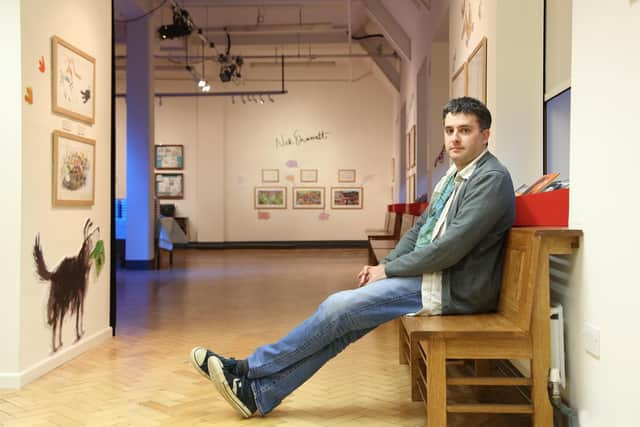Edinburgh International Book Festival interview: Daniel Hahn on the magic of Asterix and the art of translation
If you want to know what it’s like to be a translator, you don’t even need to be fluent in a different language. Instead, pick up Daniel Hahn’s Catching Fire, a diary he wrote while translating Chilean writer Diamela Eltit’s novel Never Did the Fire, published alongside it by Edinburgh-based Charco Press. Or go along to one of his events at this year’s book festival, where he will be appearing more than any other writer.
The first requirement is to be a close reader – to be able to see what the writer is getting at beyond mere words. Hahn will be putting that skill to use on Tuesday, when he will lead a discussion of Geetanjali Shree’s Tomb of Sand, which in May became the first Hindi novel to win the International Booker Prize. (Shree herself will be appearing at the festival on 20 August, alongside her American translator Daisy Rockwell.)
Advertisement
Hide AdThe second requirement is even harder: having sifted through the film of words for meaning in one language, to find that same meaning in another. “I’ll give you an example,” says Hahn. “Suppose two characters are sitting in a cafe and one makes a comment about the weather which the other mishears as a slur on the waitress. The two words might sound similar in Spanish but how do you find something in English that stays true to it? That’s the sort of thing I’ll be looking at in the workshop on translation.”
Usually, translators’ dilemmas are either left uncommented on in the text or mentioned in footnotes (one of Hahn’s pet hates) or as an afterword. What’s different about Catching Fire is that he wrote it as he was translating Eltit’s novel rather than afterwards.
“Lots of translators have written about translating in various formats – abstractly, biographically or academically – but I don’t think anyone else has done it like this,” he says. “Because I wanted to get at the truth of the process, the diary is full of my own doubts and uncertainties. An afterword is always written with hindsight, but for me this was a more truthful representation of the work. In a strange way, it feels like a very useful thing to have done. I hope it will demystify the process of translation.”
That aim is central to all of Hahn’s events, but arguably none more so than the two free ones with Sarah Ardizzone, in which they take a French children’s picture book and, over the course of the festival’s last weekend, get festival visitors of all ages to translate it into English. “Whether you have French or not doesn’t matter: it’s all about guessing the words from the expressions on the characters’ faces. It’s immense fun.”
When you do know the language, though – Hahn’s are Portuguese, Spanish and “basic A-Level French” – the challenges pile up. An example he likes to cite is Anthea Bell’s translation of the first Asterix books. “All the characters’ names are plays on words and the Gauls’ male names end in -ix, so Asterix’s dog, who has a terrier-like determination, and never lets go once he gets hold of a Roman’s tunic, is Idefix, from the French idée fixe. How do you translate that? Bell came up with Dogmatix, which is perfect.”


With many translators, the bigger a book’s challenge, the greater its appeal. In Hahn’s final festival event, he will appear alongside Venezuelan writer Roberto Blanco Calderón, whose novel The Night is stuffed full of anagrams and palindromes and which Hahn translated with a friend. “On the one hand that’s a nightmare to translate, but it’s lots of fun,” he says. “I have a theory that translators are naturally drawn to difficulty. They might say, ‘Oh, that sounds appalling!’, but then you see a little gleam in their eye, as if they’re thinking, ‘Oh, I wish I had one of those!’”
Advertisement
Hide AdDaniel Hahn will be talking about Catching Fire (14 August, 12.15pm), leading close read discussions on Asterix (14 August, 5pm) and Geetanjali Shree’s Tomb of Sand (16 August, 1pm), hosting a workshop on translation (15 August, 5pm), joining Sarah Ardizzone in the Spectacular Translation Machine (free, 27 and 28 August, 10.30am-2.45pm ) and appearing with Roberto Blanco Calderón (29 August, 8.15pm)